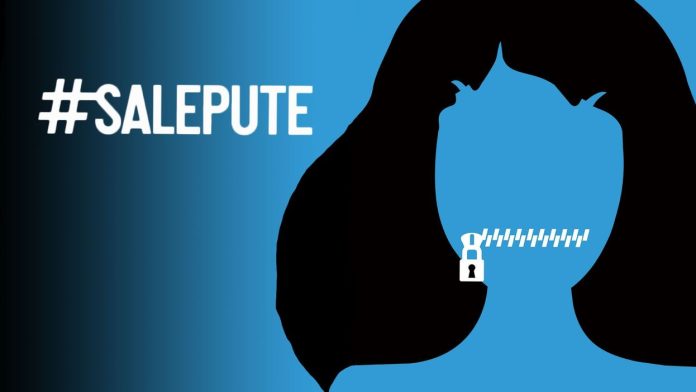On the 25th of November, the world commemorated the International Day for the Elimination of Violence against Women. To mark this day, Ciné-ONU Brussels screened ‘#Salepute’, a film about cyber-violence against women.
In the European Union, one in ten women aged 15 and upward are reported to have experienced cyber-harassment. COVID-19 has further exacerbated the risks of cyber-violence against women and girls. Internet use increased between 50%-70% from pre-pandemic levels. This increased exposure has led to a shadow pandemic of gender-based violence online.
Following the film, the audience joined in a powerful discussion on gender equality and online misogyny with Thierry Barbé from the European Commission, Dagmar Schumacher from UN Women, and Florence Hainaut, director of ‘Salepute’. The discussion revolved around what gender-based cyber-violence looks like, and what mechanisms can be used to eliminate it.
Online abuse against women
#Salepute follows the real stories of ten women in Europe who have suffered from gender-based cyber-violence. When asked about her reasons for making the film, Florence Hainaut, co-director of #Salepute, said “We wanted to give the opportunity for women to understand what happens to them. We wanted to tell them that it is not their fault, they did nothing wrong and it is systemic”. “When it happened to us, we were alone.” she continued referring to the online abuse her and her co-director Myriam Leroy faced, “We wanted to give to them a tool that we didn’t have”.
Thierry Barbé, Head of Unit DG for International Partnerships at the European Commission, spoke on how the film opened his eyes to his line of work: “We work with countries in Africa, Latin-America and Asia on improving digital connectivity and use of the internet around the world. By doing so, we put a lot of attention on empowering women… but at the same time, I now see that I am putting them in danger”.
Mr. Barbé commented on the systemic issues of the problem, “We are waiting for legislation on hate speech around the platforms, and Europe is at the forefront of it, but so far, hate speech is defined with the angle of racism or political hatred, but not yet violence against women”. Dagmar Schumacher, Director of UN Women Brussels Office, added, “It is so important that we really look into new legislation and regulatory frameworks that do address cyber-violence against women very specifically”.
Challenging online harassment
In order to create a safe space for women online, it is the perpetrators that must change. “We could stop sexual harassment, online harassment, sexual violence against women tomorrow if the perpetrators would change their behaviour.” Dagmar Schumacher stated. “We have to work with everybody to change their behaviour, to change social norms and to make sure that it is not acceptable anymore”.
“The internet is a public space and we cannot stop public spaces. We don’t stop crossing the street, because in order to get across the city, we have to do so. And that is exactly the same for the internet.” said Florence Hainaut explaining why regulations and change of social norms is so important in stopping cyber-violence against women.
Another mechanism to help reduce and eliminate gender-based cyber-violence is to include women in the conversation in the technology sector. “We need more women of all ages in the technology sector. It’s a huge sector and with more women on board we could help to create a new prism and a new perspective” said Caroline Petit, Director ai at UNRIC and moderator of the evening.
“One of the ways to raise awareness is to let women make movies about these specific problems. We don’t need anyone to speak on our behalf, we do it very well ourselves.”, said Florence Hainaut in her closing statement.



